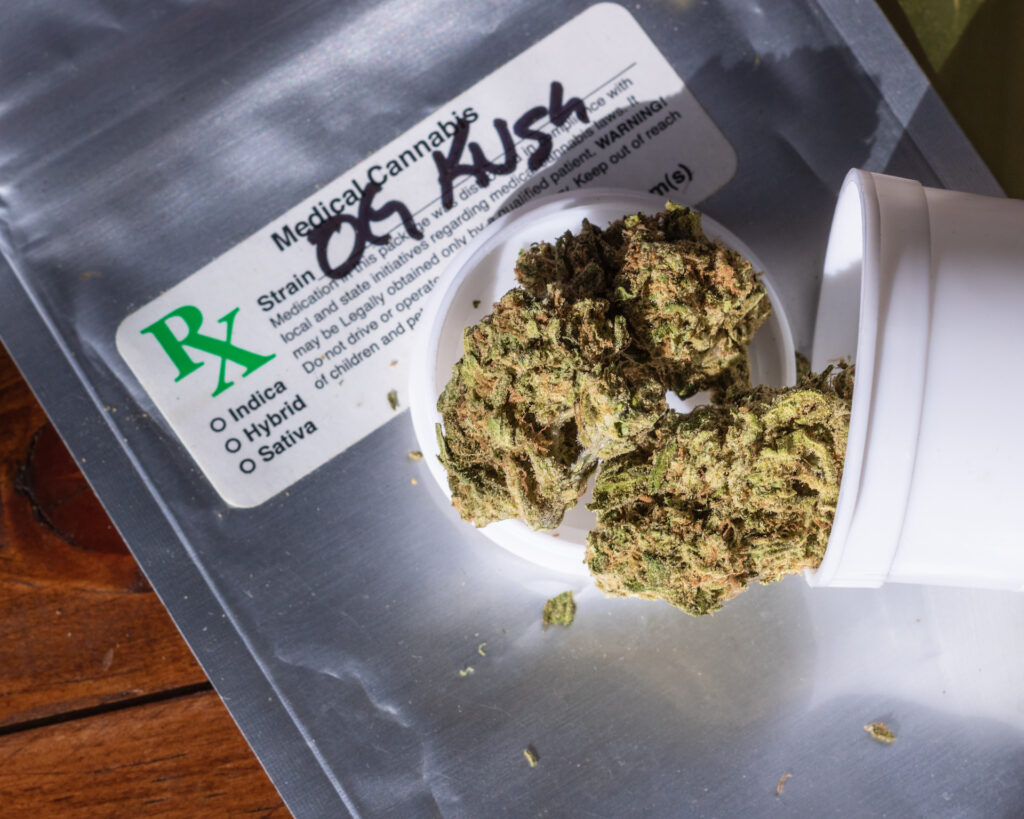As the cannabis industry continues to grow across the United States, so has budtending as one of the most straightforward entry points to building a canna-centric career. The latest Leafly Jobs Report estimates the industry now supports nearly half a million jobs, and it’s only going up. Loving weed is a great foundation for becoming a budtender, but what else goes into getting the job?
A budtender is an employee at a cannabis dispensary responsible for helping customers find the best products for their recreational wants and medicinal needs. Any given day of a budtender’s job may include duties such as:
- Helping medical patients or customers find the right products based on symptoms and preferences
- Staying on top of the latest products emerging in your local market
- Keeping the dispensary clean and tidy
- Aiding in on-site customer consumption and explaining accessory use (if allowed)
Depending on what state you live and/or shop in, you may need to keep track of multiple patients’ health information, explain dosage, consumption methods, and purchasing limits to customers, or act as the guinea pig for a new product.
But, there’s plenty more to know about how to become a budtender or getting a job at a dispensary.
Does weed have to be legal in my state for me to be a budtender?

In short, yes. Cannabis has to be medically or recreationally legal in your state to budtend at a legal, licensed dispensary. If your state only has medical dispensaries, prepare to demonstrate your health knowledge and discuss cannabis from a strictly medicinal perspective with all clientele.
Medical-only states tend to have stricter hiring practices than adult-use states. They may also refer to budtenders as patient specialists or other titles that align with the language of patient-first medical marijuana programs.
Do I need budtender certification?
Certifications are nice to have if you want a comprehensive understanding of cannabis but usually aren’t mandatory. Over a hundred colleges and universities also offer cannabis-centric classes, certificates, and online programs that pertain to different aspects of the industry.
But what’s most important is understanding the market you work in and how to best serve the people coming in the door. You need to speak confidently about cannabis and its compounds, and how different products might affect people.
Reading our own Learn section, for example, provides you with a crash course in cannabis terminology, popular products, and how consumers can pair cannabis with their needs.
A budtender’s top three traits
Ace Rowe, a product specialist in the medically-legal state of Missouri, has exuded the budtending mindset for much longer than her job has been legal in the state; like others across the country, she set her eyes on the prize and jumped into the industry as soon as everything aligned.
“Product knowledge, being able to chat with all sorts of people, and enthusiasm for asking questions—both for continued training and to learn the most about the client.”
Ace Rowe, product specialist at Swade dispensary
Ace’s very real advice is to focus on the three E’s: elevating knowledge (about cannabis), empathizing with customers, and keeping education at the forefront.
“I’ve been in sales since 2010, so I learned that if I’m going to be fulfilled at work, I have to be passionate about the product. For me, it was a passion for the plant and passion for helping match people’s needs and wants to find meaningful solutions. I dreamt I was working in a dispensary, applied, and went to a job fair.”
She knows that working in a med state comes with more complex interactions with clients, which can’t be taught in a certification course.
“In recreational [markets,] people want to flash their ID, pick the highest THC or the largest quantity of edibles—whatever is the best deal. In medical, we look into dosage, terpenes, ingredients, all factors. I’m able to provide more holistic options.”
Do I need budtender training?
Budtender training, like a certificate, is helpful, but not required to enter the industry.
However, budtenders should always strive to learn more and more, in order provide a good dispensary experience. Ace enjoys the ongoing education provided by her employer, and learns a lot while she is on the job.
Related
How to get hired as a budtender
Be prepared for these situations: how to address customers professionally under state law and how to build relationships with patients or customers that will keep them coming back.
You can begin your own personal budtender training by reading up on cannabis research, following the news, and practicing how to communicate your knowledge about weed to the people around you.
Budtenders help with a range of issues, from health needs to how to chill. The more time you put in, the more confident you’ll feel.
How can I stand out as a budtender applicant?

Resources like Leafly’s Cannabis 101 and Learn sections provide plenty of free information to start growing your comfort with the plant and learning how to talk the talk.
Start with foundational information like the endocannabinoid system, different kinds of cannabinoids, and different ways to consume weed. And don’t forget about all the good people on YouTube, Reddit, and cannabis media who share their knowledge for free. Dispensaries often also post blogs on their websites that provide additional product and medical education.
If you do have money to invest, education options through cannabis colleges like Oaksterdam University or the recently launched Harrington Institute at Cleveland School of Cannabis, can help you begin networking with industry professionals while learning the plant’s ins and outs.
How much do budtenders make?
One of the great perks of budtending, beyond access to an array of amazing products, is the pay. Budtender wages almost always exceed the national minimum wage of $7.25, though local municipalities may have higher wages.
According to Payscale, the average hourly budtender pay is $14 in 2022. Some budtenders may also make tips, bonuses, or commissions, but this depends on the rules of the dispensary and local cannabis laws. Some companies may also offer medical benefits.
Do I need to go to college to become a budtender?

Short answer: no. Budtending is often an entry-level position that can lead to more opportunities depending on what you want to do.
If you’re interested in cannabis entrepreneurship or building your own cannabis brand, you can dive deeper into business, economics, or marketing classes. And there’s no cannabis product manufacturing without the engineers who get us there.
Biomedical and biological sciences will help you with a foundational understanding of the plant and the body. Agriculture classes can help you learn about growing weed at scale.
Related
How to turn a degree into a cannabis career
While many accredited universities offer programs to help people learn more about the cannabis plant and the industry, not everyone has the means to access them. Fees and other systemic obstacles can prevent people from beginning a career in weed, despite those same people possessing a lot of knowledge about the plant and how their communities consume it.
Is budtending a promising career?
Cannabis isn’t just a promising, billion-dollar industry, it’s now an essential business in the United States. Depending on your goals and location, budtending can lead to a long career in cannabis, or just be a job you do to pay the bills before you take the next step. It provides a (rather fun) entry point into the cannabis industry and the means to learn a lot about weed.
Most importantly, budtending is about helping people access and discover cannabis, establishing knowledge of the plant, and helping people find what works for them, no matter the reason.

